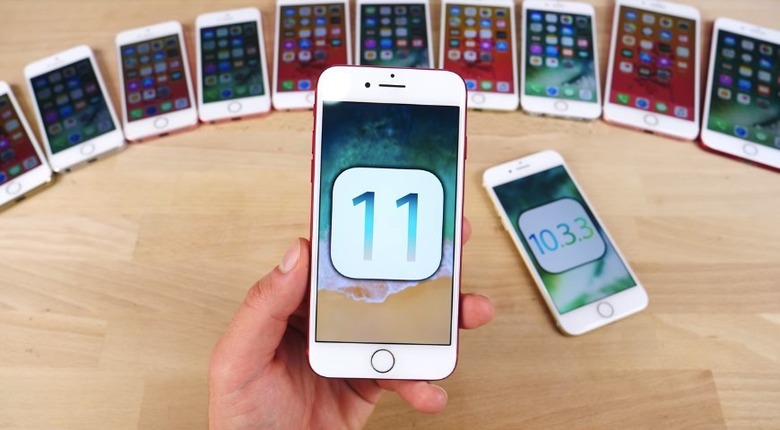How Fast Is iOS 11 Anyway?
Now that iOS 11 is out, and you can update your iPhone and iPad to Apple's best iOS upgrade in years, you may be wondering how fast iOS 11 is compared to the iOS 10 build it replaces. That question is even more important if you're using an older iPhone or iPad model. Thankfully, there's a thing called YouTube, and we already have iOS 11 speed tests and comparisons for every single iPhone model that can run iOS 11.
YouTube channel EverythingApplePro is back with a speed test that compares iOS 11 to iOS 10 on all the iPhones compatible with both releases — that's iPhone 5s, iPhone 6, iPhone 6 Plus, iPhone 6s, iPhone 6s Plus, iPhone SE, iPhone 7, and iPhone 7 Plus. Yes, the iPhone 8 models are absent from the list, but that's simply because they ship with iOS 11 preinstalled, which means you can't run iOS 10 on them even if you wanted to.
Just like similar comparisons in the previous years, it's not exactly a fair one. iOS 10 is now at version iOS 10.3.3, which is a lot more stable than the first public iOS 10 build. iOS 11, meanwhile, is fresh out of beta so it's not completely bug-free.
That said, iOS 10.3.3 boots faster across the board, and it may be a tad faster than iOS 11 when performing typical tasks for all devices up to the iPhone 6s. Starting with the iPhone 6s, you see a clear improvement in performance from iOS 11, and the performance is almost on par with iOS 10.3.3.
Should you update to iOS 11? The short answer is yes, definitely, as it brings over a ton of new features and improvements, and it'll get faster in time.
However, if you're on older hardware, you might want to wait until Apple releases an iOS 11 update for your iPhone or iPad, which should further enhance performance. While you wait, here are some ideas on how to make iOS 11 run faster on your iOS device.
